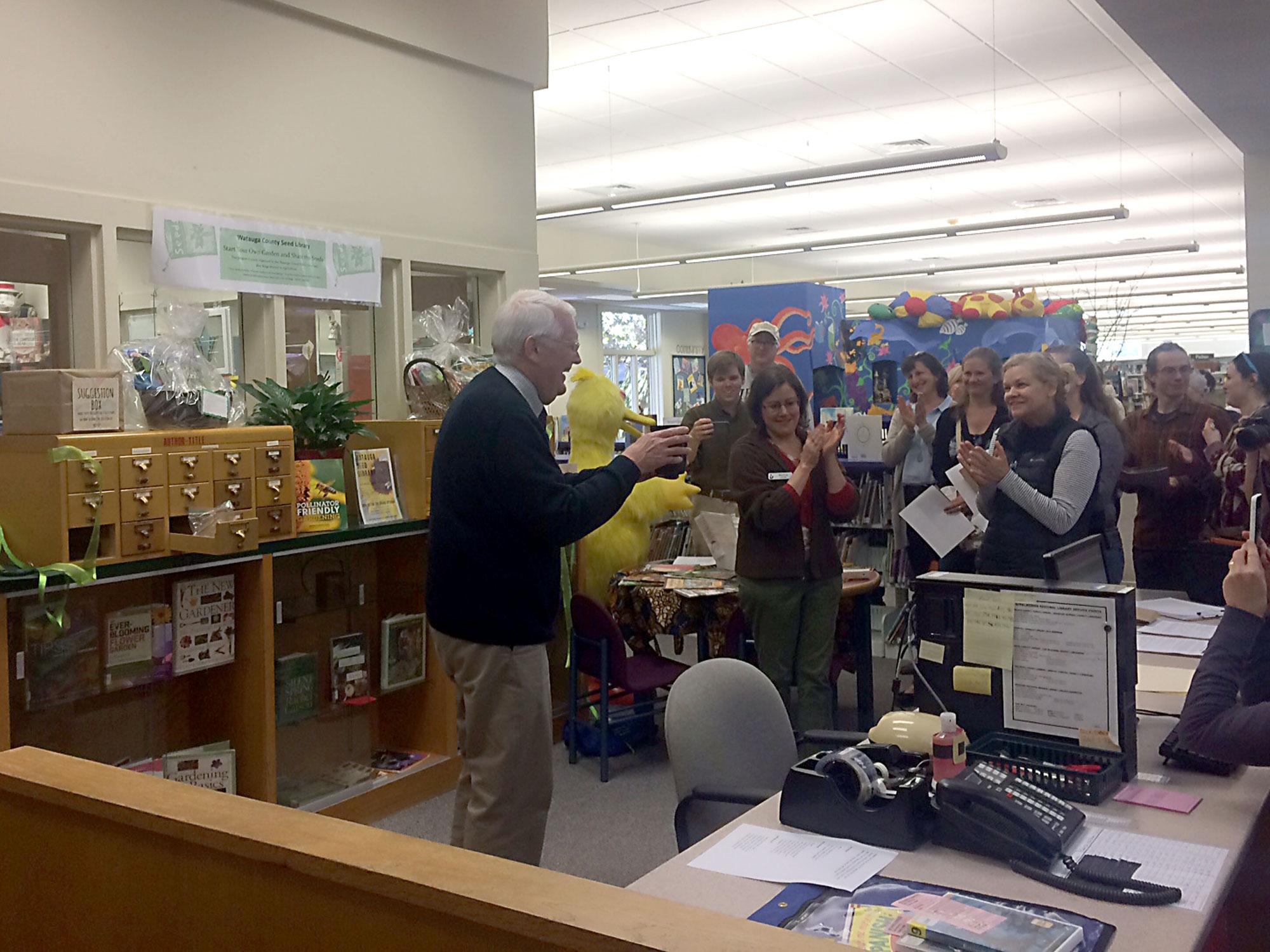Over the last year, Blue Ridge Women In Agriculture has been working with librarians at the Watauga County Public Library and faculty and staff at Appalachian State University to make a Boone seed library a reality.
Over 70 members of the community attended the seed library’s grand opening on Saturday, where Mayor Rennie Brantz spoke on behalf of the Town of Boone and performed the ribbon cutting.
The seed library, located in the Watauga County Public Library, has over 100 seeds, many of which were donated from local businesses, farmers in the community and farming organizations in the region.
Individuals can check out up to six seeds at a time, no library card necessary. To create a continuous system of available seeds, the library asks that people save their seeds and return them at the end of the season.
Karen Lemke, doctoral student in the Reich College of Education, said the tradition of swapping seeds goes back millennia, with the seed library providing a permanent home for the tradition.
“It’s like a regular library, but whereas in a book library you might have your books checked out for a few weeks, here you check out seeds by season,” Lemke said. “You plant them in the ground, harvest the crop, and bring the seeds back.”
All seed library users are encouraged to bring back seeds at the end of the growing season, but to ensure the library doesn’t run out of stock, BRWIA has created the Dedicated Seed Growers, a group of farmers in the community who will attend seed saving workshops and implement the process in their own farms each year.
The idea for a Boone seed library began in spring 2016, after BRWIA board of directors member Debbie Bauer heard about the idea at the Mother Earth News Fair in Asheville.
As Bauer began to research seed libraries, Jacqueline Ignatov, another member of the BRWIA board of directors, coordinated the spring 2016 Food Summit event to teach about seed saving.
The idea was further energized when James Veteto, an anthropologist at Western Carolina University who was the keynote speaker at the Food Summit event, reached out to Ignatov in fall 2016 to have a seed saving workshop hosted by Gary Nabhan, an ethnobiologist at the University of Arizona and the Southwest Center.
Ignatov said the seed library’s motto is “share seeds, grow food, spread knowledge.” More than just about feeding community members, Ignatov stressed the learning component the library promotes.
“It’s both about having this resource available to the community for free, celebrating that kind of self sufficiency and growing locally adapted varieties of food, as well as learning how to grow the food, learning how to save the seed and having an appreciation for the whole process,” Ignatov said.
To promote education, BRWIA will be hosting free workshops focusing on teaching people to save seeds to add to the library at the end of the season. There are plans to expand the workshops to other gardening processes like organic farming given enough interest.
“Seed saving used to be a thing that everyone knew how to do,” said Lindsey Giglio, BRWIA community of gardens coordinator. “How are we gonna keep this food system sustainable? By saving seeds and passing them along so we don’t have to buy seeds. It’s a resource that should be a cycle, be continuous, and we’re trying to continue that here with workshops.”
The workshops will be held in the Watauga County Public Library and led by Richard Boylan, the area agent for alternative and organic agriculture for Watauga and Ashe counties.
In addition to teaching technical information about farming, Caldwell said one of her goals with the seed library is to educate on broader issues in agriculture, and to encourage people to consume and produce local products.
“If a publicly supported library has a place where community members, even people brand new to the community can come and access seeds, grow their own food, and give back to the community, it creates an alternative economies that aren’t based in that capitalist paradigm as well,” Lemke said.
Ignatov described the seed library as a “small and mighty axe,” that will serve multiple roles: a food source, a community hub, an educational resource and a place to share stories about farming.
“This is a way in which we can insert food sovereignty and seed sovereignty in our own community that is the way in which we can have autonomy and control, being able to produce food in ways that align with our values,” Ignatov said. “The seed library is about encouraging a culture of sharing.”
The seed library is now open to the public, from 9 a.m. to 7 p.m. Mondays through Thursdays and 9 a.m. to 5 p.m. on Fridays and Saturdays.
Correction: A previous version of this story incorrectly referenced Karen Caldwell, faculty member in the Reich College of Education, which has been corrected to Karen Lemke, doctoral student.
Story by: Aleah Warner, Managing Editor

